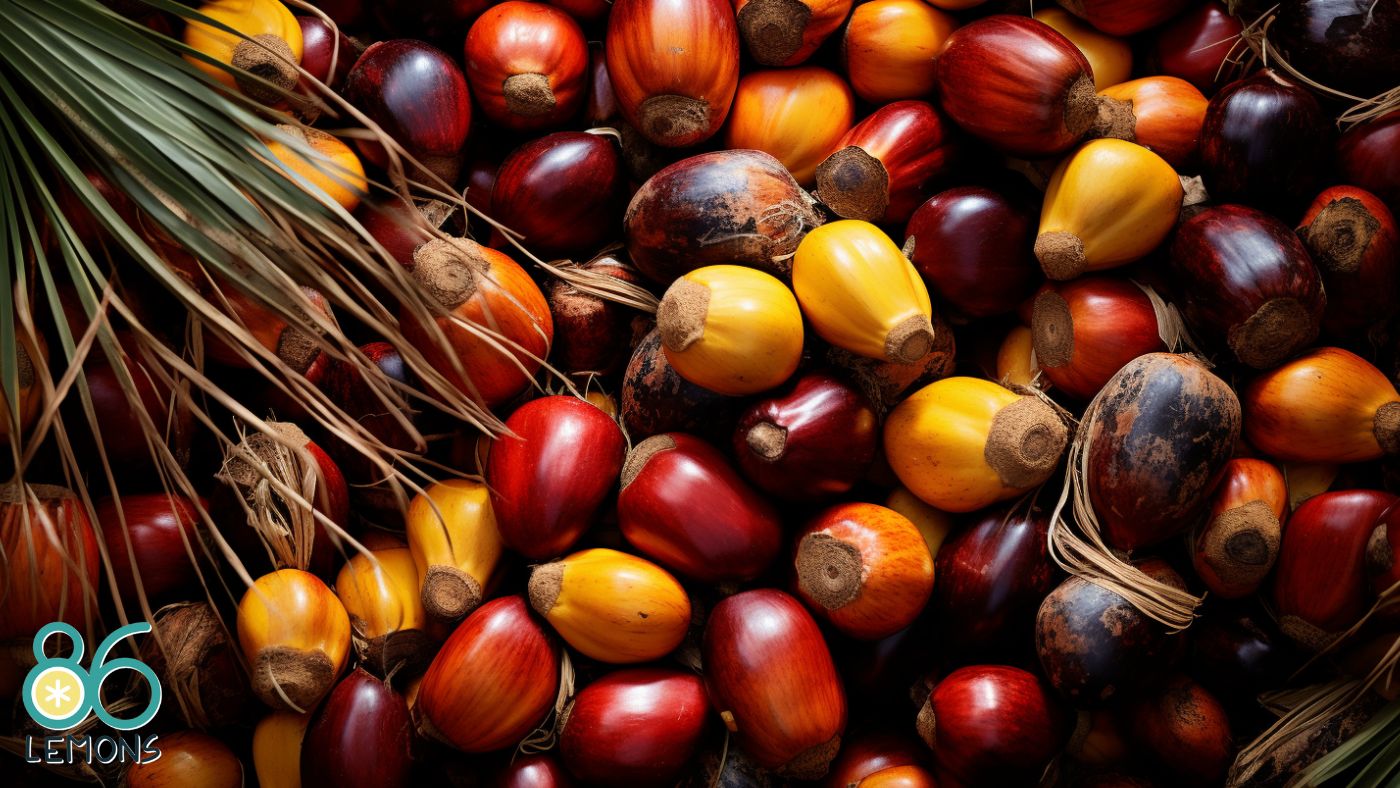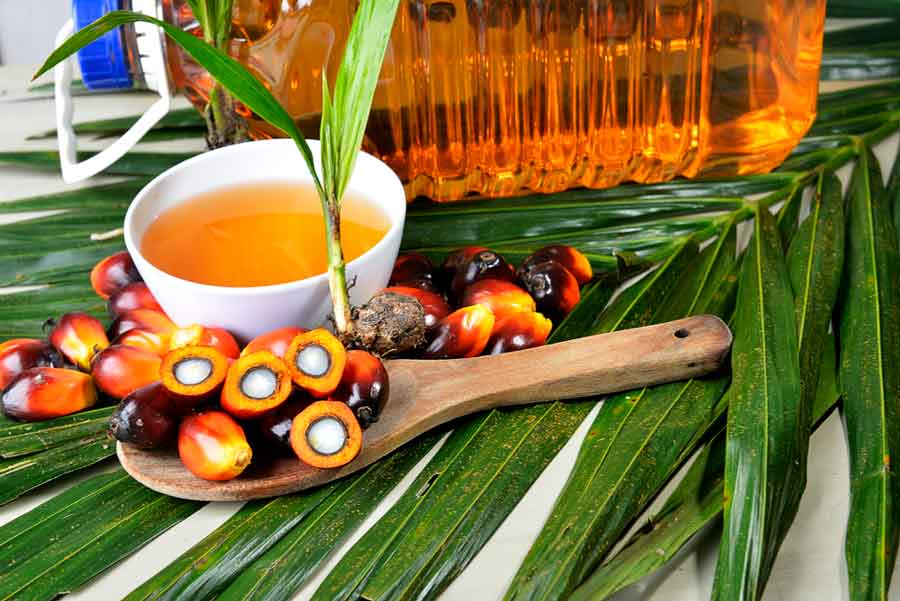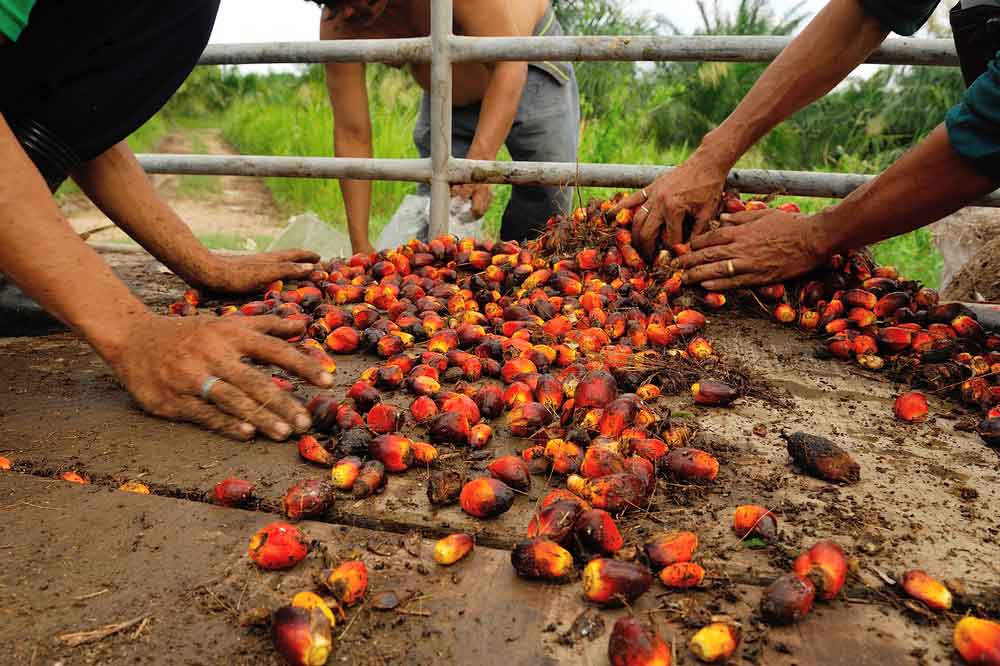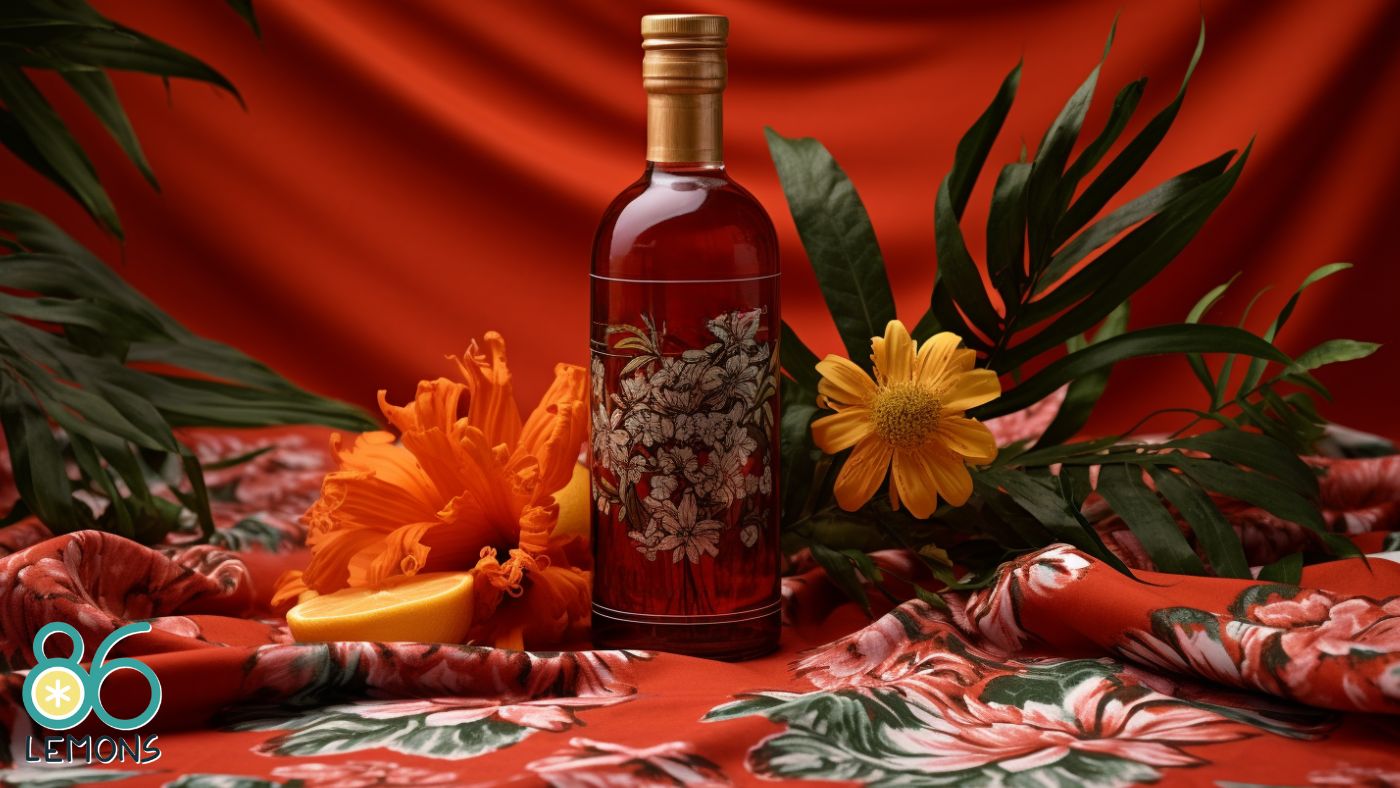Palm oil is becoming increasingly mainstream as a “healthy” alternative. But along with its recent growth comes the persistent question, “Is palm oil vegan?” But the answer isn’t quite so simple or straightforward…
Can vegans eat palm oil? Technically, yes. Palm oil is made from palm, which is a vegetable product, and while the oil is technically vegan in that, it contains no direct animal products, its environmental impact is often the reason why many vegans choose to steer clear of this oil.
The palm oil industry itself is why many feel it does not fit into a vegan lifestyle. Palm oil production and palm oil companies can have a negative impact on the environment, on humans, and on animals.
So, is palm oil vegan? It really comes down to whether you define veganism as not eating animal products or if you feel it is a broader term and lifestyle, as that will determine whether palm oil will make it onto your vegan table or not.
Where Does Palm Oil Come From?
Palm oil is made from palm trees grown on palm oil plantations. Much of the world’s palm oil plantations are based in Southeast Asia, Indonesia, and Malaysia.
Palm oil is made from, you guessed it, oil palm trees. The oil palm trees are grown on plantations, which is where much of the controversy around palm oil begins.
Read Next: Tea Tree Oil: Is It Vegan?
The oil palm trees produce palm fruits from which the palm oil is extracted to create crude palm oil. It is usually further processed to create a type of vegetable oil or other palm oil products. Palm fruit is reddish in color, and crude palm oil is also the same reddish color.

As you can see, there are clearly no animal products in palm oil itself, as it is made directly from fruit from oil palms.
But when it comes to production, that is where palm oil often gets into trouble. Poor environmental practices, questionable production methods, and the effect it all has on the natural world can cause many vegans to just say no to this otherwise healthy oil.
What Is Palm Oil Used For?
Palm oil is used most often as a vegetable oil replacement, but palm oil can be used for everything from vegan cheese to packaging products and packaged foods. In fact, it shows up in more than half of all packaged products these days.
Palm oil production costs are very low, making it one of the most cost-efficient crops out there. Palm oil trees can also be grown year-round, which makes the harvesting season long and lucrative. Many companies are drawn to using this oil for this very reason. In fact, most predictions expect the demand for this oil to double within the next ten years and then triple by 2050, as this oil is used consistently all over the world.

Not only is it cheap to grow, but to begin with, its yield is also far more productive than soy, sunflower, and many other oil substitutes. The kernels, fruit, and many other parts of the tree can also be used, making it a very profitable operation in many aspects.
Palm oil itself has its upsides, too. In its natural state, palm oil also has quite a lot of health benefits. It has been shown to lower blood pressure, provide vitamin A, prevent cancer, and assist with malaria and its symptoms. It has many overall health benefits, making it a generally good vegetable oil alternative.
Unfortunately, however, much of the oil does not come naturally, and many processed forms are much less healthy. They can contain additives and preservatives that devalue their original healthy label and can cause them to be knocked off the vegan list, depending on the type of additives or preservatives that have been incorporated. Yikes.
And while the oil is plant-based and has health benefits, it is often used in less-than-healthy ways. Unprocessed, these health benefits abound, but more often than not, the type of palm oil that is finding its way to your table or menu item is often highly processed.
Read Next: Is vegetable oil vegan?
It can show up in all kinds of processed foods and is even used in feed substances that are used in animal agriculture. Which, in and of itself, might cause many vegans to think twice about supporting this oil or adding it to their dinner table or recipe lists.
It is an oil with many uses, so it also shows up in beauty products, biofuel, pharmaceutical products, and the list goes on and on. Palm oil is used in many products because its production costs are low.
But while its financial cost of production may be low, the environmental toll can be high due to the negative impact producing palm oil has on the environment.
Why Palm Oil Is Bad For The Environment
The production of palm oil and palm products has caused quite a stir in vegan society due to the clear land practices used in oil palm plantations.
In order to create the plantation, thousands of acres of natural forest land are cleared every year, which means the local wildlife, including endangered species and many animals, suddenly find themselves without a home. The impact is that far fewer animals are able to live in the area, reproduce, and renew the population. Also, more animals are continually killed as more land is cleared.
The method of clearing the land is also problematic because it involves setting illegal fires, draining swamps, overplanting, and preventing the spread of other plant species.
So the land is stripped bare of forests and nutrients, then simply abandoned when the trees are no longer producing, with the plantations simply moving on to another area of forest land.
That type of farming also has a negative impact on natural habitats and climate change as a whole, in the sense of global warming and an increase in greenhouse gas emissions and global carbon emissions.
As if all of that weren’t bad enough, toxic fertilizers, pesticides, and other chemicals are often used to help boost the stripped soil and increase production. These chemicals and fertilizers often seep into groundwater and poison local water supplies for people and animals.
The workers on the plantation, as well as the local animals and people, are also exposed to these chemicals and fertilizers as they spread for miles from the distribution site.
How Does Palm Oil Affect Humans?

Palm oil has an effect on the human and non-human animals involved in its production.
Palm oil production methods have been slammed for several human rights violations, including child labor, unsafe work environments, and disproportionate and very low wages.
The plantation workers are paid little for hard, long, and dangerous work.
If they are paid at all, palm oil production is one of the top four known industries that perpetuate child labor. The children are brought in from neighboring areas and used as free or very low-cost labor to help harvest the palm fruit and extract the oil. Unfortunately, these poor labor practices contribute to why the oil itself is so cheap to make and why so many companies use it as an alternative to more expensive, although more ethical, oils.
It is a vicious cycle: as palm oil demand increases, so does its production and the harmful effects it can cause. While a crackdown on this cheap, free, and unethical labor has begun, many of the new standards are routinely flouted as there is little to no regulation or enforcement.
How Does Palm Oil Affect Animals?
The growth and production practices are also hard on our four-legged friends and even our fellow two-legged ones!
Orangutans are one of the animals most affected by palm oil. The clear-cut method used for farming the palm tree destroys the Southeast Asian forests that they call home and cuts off their food supply. It leaves them in exposed habitats where they cannot hide from hunters or other predators.
The “palm oil orangutans,” as they are often called, have garnered a lot of support in the vegan and animal rights communities, as many have tried to draw attention to their plight. As many vegans feel that veganism is not just about not eating animals but also taking up their cause, this is one of the reasons that palm oil or palm products are not on many vegan products or vegan food lists.
This method of farming also takes up many of the natural resources of Southeast Asia’s land and disrupts the animal’s natural ecosystem.
Although orangutans are the most well-known animals to suffer from this type of harvest, they are not the only ones. These clear-cutting techniques also have an impact on elephants, alligators, other primates, otters, birds, and numerous other animals by destroying their habitats and food sources. Big and small animals are having their habitats disrupted and their food sources taken away due to palm oil farming practices.
For instance, this farming method has almost completely wiped out the endangered species of Sumatran elephants, and its effects are still present.
As the animals lose their natural habitat, they tend to encroach on human lands and are often killed. Or the animals attempt to return to the area that once was their home, and the plantation owners kill them to keep them from getting to the crops. It is a sad state of affairs all around.
The production of oil palms directly harms animals, but its overall effect on the environment really harms us all.
How To Avoid Palm Oil
A quick label check usually lets you know if something contains palm oil. But palm oil can appear in many places, from cooking oil to packaging products to ice cream. So, sometimes, it might take a little more digging to see if a product does contain palm oil.
Here are some other names that palm oil and palm oil products might be listed under:
Palm kernel, palmitic acid, vegetable fat, palm olein, palm stearin, palm fruit oil, palm kernel oil, palmitate, glyceryl, stearate, stearic acid, elaeis guineensis, palmate.
Palm oil can be processed in many different forms, so it’s always good to do your homework before diving into a new product.
But on the positive side, due to public backlash against palm oil production and its negative side effects, a roundtable on sustainable palm production has been created. This roundtable on sustainable palm has created a certification process for sustainable palm oil and certified sustainable palm oil production. So now accessing sustainable palm oil can be as easy as a quick label check!
The sustainable palm oil certification focuses on aspects of palm oil production, palm oil cultivation, and even the labor practices behind the harvesting.
Both food and agriculture organizations have approved the certification, which guarantees that the oil’s harvesting, growth, and production methods are cruelty-free.
Ensuring the palms used to make the palm oil are rotated with other plant-based crops keeps the soil full of the nutrients needed to reuse the same plot multiple times, as opposed to stripping the land of its resources and then moving on to a new plot, which would mean clearing more forest land. Many feel sustainable palm oil is the way of the future.
So Is Palm Oil Vegan?
Sustainable palm oil is a definite yes, as its regulations around sustainable practices keep the forest, humans, and animals safe.
But unsustainable or unregulated palm oil might be a no in your book, depending on how you view the concept and definition of vegan and vegan lifestyles.
But now you have all the facts, figures, and information you need. So now you can be the one to decide if palm oil will be showing up on your vegan menu anytime soon or if you will “take a palm” to palm oil, as many are now saying.
Read more:



Palm oil is a big “NO” in my book!!! Destroying the habitat and food source is not ok…driving animals to extinction for the Almighty dollar is NOT OK!!! If anyone that has followed this issue can distinctly recall the video of an orangutan attacking a bulldozer digging up its palm trees in a horrific effort to stop the destruction…you can comprehend for life the devastation this has on them..if seen photos of dead orangutan lying in mud…etched in my mind forever. Someone found a way to make money at the expense of the environment!!! Not ok!!!! Not ok!!!!